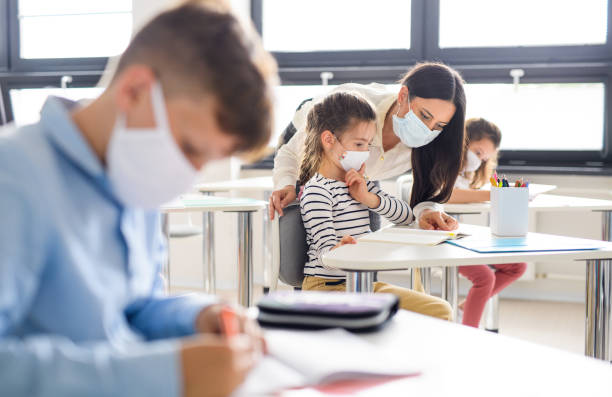
Schools across Delhi and the National Capital Region (NCR) are set to transition to a hybrid learning model for students in classes up to Grade 5. This move comes under the Graded Response Action Plan (GRAP-III), a directive introduced to combat the worsening air quality in the region.
Why the Shift to Hybrid Learning?
The Commission for Air Quality Management (CAQM) implemented GRAP-III due to severe weather conditions, including stagnant winds and low atmospheric mixing heights, which have exacerbated pollution levels. These unfavorable conditions have made it essential to limit outdoor activities for younger students, prompting schools to adopt a mix of online and offline teaching methods.
District authorities across Delhi-NCR will provide specific instructions regarding the schedule and implementation of hybrid classes. Parents and students are advised to stay updated through official channels for further announcements.
Additional Measures Under GRAP-III
Apart from changes in school operations, several other measures have been enforced to mitigate pollution:
- Restrictions on Diesel-Powered Vehicles:
- Diesel commercial vehicles with engines below BS-IV certification are prohibited from operating in Delhi, except for those involved in essential services or emergencies.
- Goods carriers registered outside Delhi with sub-BS-IV engines are barred from entering the city until further notice.
- Promoting Alternative Transport:
Authorities are encouraging the use of electric and CNG-powered vehicles to reduce emissions during this period.
Impact on the Community
The implementation of GRAP-III underscores the region’s urgent need to address its air quality crisis. While hybrid learning ensures students’ education continues uninterrupted, it also prioritizes their health and safety. Additionally, vehicle restrictions aim to reduce vehicular pollution, which is a significant contributor to the deteriorating air quality.
What Parents and Schools Should Do
- Stay Updated: Regularly check announcements from school administrations and local authorities for changes in schedules.
- Equip for Online Learning: Ensure students have access to the necessary tools and stable internet connections for virtual classes.
- Limit Outdoor Activities: Encourage children to stay indoors, especially during periods of high pollution levels.


